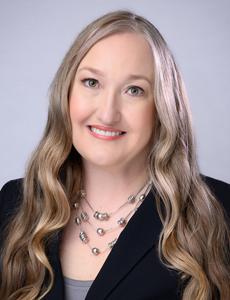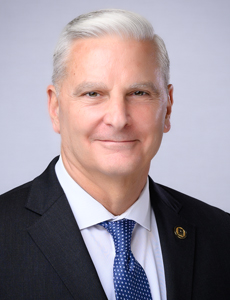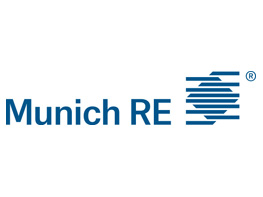How PSCI Tamed Its Ex-Mod and Claims Costs While Creating Jobs for Disabled Workers

As any workers’ comp or safety professional knows, turning the ship around can be a major undertaking, whether the problem lies in claims management, loss control or medical management.
But what if the problem were all three?
For Barbara Curd, vice president of safety and loss control at Professional Contract Services Inc. (PCSI) based in Austin, Texas, the challenges were numerous, but the solutions were in reach — with dedication and the right leadership. That effort proved fitting for the team, earning PCSI a 2023 Teddy Award Program of Distinction nod this year.
“Our journey started over 10 years ago,” Curd explained. “We are a nationwide organization, and we have employees who work on military installations across the United States. They’re not always at one site location.”
PCSI recognizes that people with disabilities face massive barriers to employment and can lack meaningful career opportunities. To combat the issue, the company employs 1,800 people of all skill levels and abilities across the United States, integrating people with disabilities and veterans into jobs with competitive wages and benefits.
The company’s scope of work includes health care environmental cleaning, food service, total facilities maintenance, fleet management, vehicle operations, warehousing and logistics, housekeeping and more. Many of the employment opportunities provided by PCSI are on military installations across the country.
“Our mission and our primary goal is to employ individuals who have significant physical and cognitive disabilities,” said Curd.
A Time for Change
Curd joined the company in 2010 and soon learned the company’s experience modifier with its new carrier was 1.24.
The need for change was evident.
Over the course of Curd’s information-gathering, she identified numerous opportunities for improvement across the program. The heterogeneity of PCSI’s work sites and the special characteristics of its workforce necessitated a new emphasis on loss control.
“We experience a lot of aggravation of pre-existing conditions that we had to ensure we were incorporating into our loss-control program,” Curd explained.
“One major challenge was a lack of communication with our providers. In addition to a lack of reporting, injuries were communicated verbally rather than through an incident report. We identified that that was a significant opportunity for us.”
The lack of communication with medical providers resulted in delayed work status reports, plus spikes in medical costs for a reason that was easy to discern once Curd and her team dug in.
“We had providers treating our employees for their personal health conditions rather than the acute injury,” Curd said.
This fact resulted in a clear disconnect between claims handlers and the company’s network of medical providers, so Curd — a licensed adjuster herself — began to assess the claims process and opportunities to improve communication across the board.
“We only relied on our adjusters with our insurance carrier to manage claims and talk to our employees rather than us having direct employee involvement,” Curd explained.
“That was a key aspect of the problem. We understood that we were not getting our employees back to a baseline and instead continued to treat, and that resulted in higher claim costs.”
She also noted a lack of claim and accident investigation compounding the existing reporting issues.
Updates in Action
PCSI identified several primary principles to improve the program: case management, carrier partnership, accident investigation, physical demands analysis, return-to-work processes and procedures, speed to medical and network utilization, and safety.
All of these principles required new reporting structures to achieve improved results, and Curd and the team she built knew it.
“We developed a centralized reporting process that goes to our one corporate office. We investigate all mishaps — and we call them ‘mishaps’ because it includes near-misses, injuries and illnesses.”
Further, Curd’s workers’ comp team collaborated across the company’s loss control and employee development departments to establish an accident information exchange and prevent similar incidents from happening at other locations.
“Because we employ individuals with significant disabilities, our primary goal and focus is to make sure our employee goes home the same way they came into work,” Curd said.
“In order to do that, it involved looking at the process from the very beginning.”
PCSI added a dedicated workers’ comp claims administrator who communicates with the carrier’s adjusters, and — recognizing their employees’ unique needs — PCSI invested in a disability awareness training program for those adjusters.
“Some of our employees require an interpreter or might need some extra time to communicate. Our carrier and the adjusters welcomed the information, because it made their job easier,” Curd said.
Another collaborative effort is the company’s physical demands analysis, which helps employees and their supervisors understand the limitations an employee has that may affect the duties they are currently assigned or could be assigned to do.
The supervisor knows the results of the physical demands analysis of employees with physical disabilities and is then responsible for enforcing the physical demands analysis at the worksite, increasing awareness across the board.
The process was standardized across the country and company, and serves another important function in addition to its benefits to the workers’ comp program: “Inclusion of our employees no matter who they are or what they bring with them,” Curd said.
When Hard Work Pays Off
As PCSI improved steadily following the 2010 implementation of Curd’s principles and renewed emphasis on reporting and accountability, top brass took notice.
“What Barbara’s changes to the program and disciplining the process did was give the carrier and adjuster a level of comfort and trust in the information they were receiving, and that’s key to the relationship,” said Tony Cucolo, CEO of PCSI.
“When you’re dealing with individuals with disabilities, a complicated workers’ compensation process becomes complex. What Barbara has done is embrace the complexity, make sense of it, and bring a level of comfort and routine to the carrier and adjuster.”
The results speak for themselves.
PCSI achieved a 50% reduction in claim costs, massively reducing its premiums and its experience modifier.
“Currently, our experience modifier is 0.73 — below industry standard,” Curd said.
Additionally, the company’s lost-time claims average just 12% of all claims, despite 80% of their direct labor force having a significant disability. PCSI’s lost-time claim closure rates are also faster when compared to similar companies insured with the same carrier.
These improvements have only become more important as the company has grown to provide even more people with different capabilities meaningful work using their skills.
“We’ve grown outside of our typical scope of work to include facility maintenance and skilled trade work, and these tools that we’ve implemented have helped skilled workers and our veteran population be able to be in the workplace with the comfort of knowing that our first priority is safety,” she said.
Indeed, the PCSI program, under Curd’s leadership, is based on accountability across the board, not just with their carrier, and she’s achieved the necessary buy-in to sustain it.
“It starts at the top,” said Cucolo. “Every other week, we have a meeting of the executive team of the company, and all the senior leaders of the company get a briefing from Barbara on the status. If we sense a trend on a location, we dive down on it, and leaders are held accountable.”
Shared responsibility in successes and failures has allowed the PCSI team to build a successful program nearly from the ground up and improve year over year, even with a unique industry mix and employee characteristics that pose administrative challenges. &
 The Teddy Award, established in 1994, was named in honor of President Theodore “Teddy” Roosevelt, who introduced the first piece of significant workers’ compensation legislation in the U.S. The Teddy Award honors employers across the country for achieving excellence in workers’ compensation and injury prevention.
The Teddy Award, established in 1994, was named in honor of President Theodore “Teddy” Roosevelt, who introduced the first piece of significant workers’ compensation legislation in the U.S. The Teddy Award honors employers across the country for achieving excellence in workers’ compensation and injury prevention.
To view the four winners selected for 2023, visit here.












